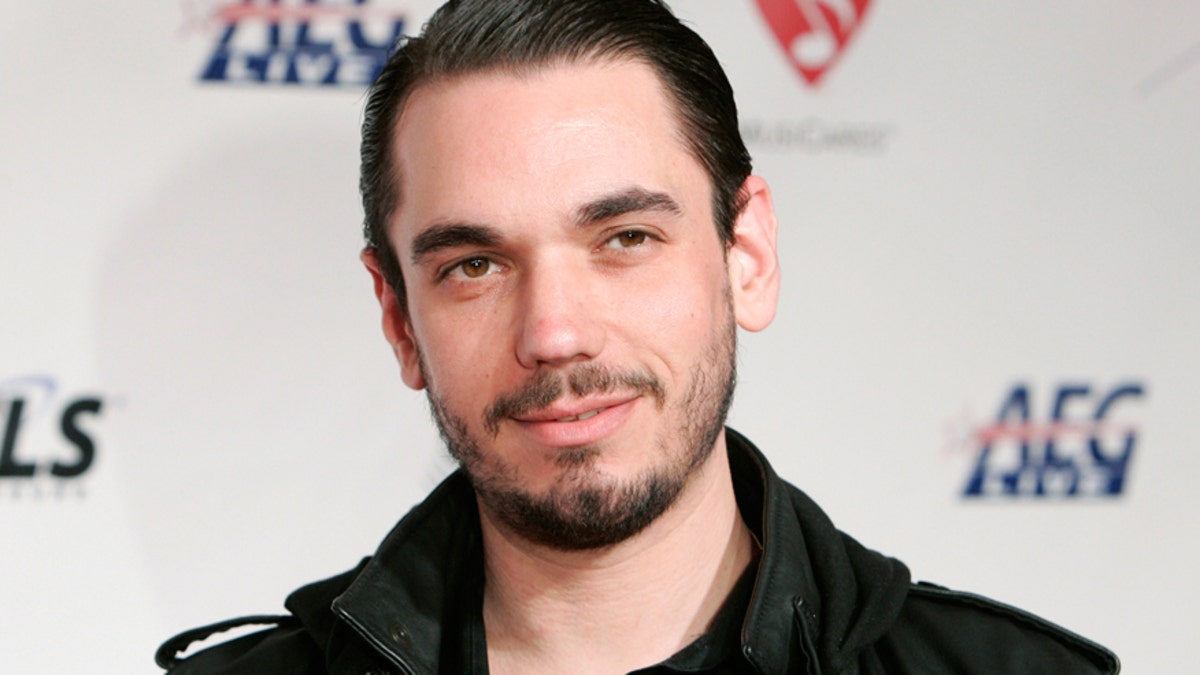
Adam "DJ AM" Goldstein arrives for the 2009 MusiCares Person of the Year gala in honor of Neil Diamond in Los Angeles, February 6, 2009. (Reuters)
NEW YORK – Adam Goldstein, better known as DJ AM, rose to fame in the mid-2000s. The charismatic young DJ was known for his unique mashups that attracted all of young Hollywood to major nightclubs, and he set the course for many DJs currently hitting the airwaves. He was also famous for his high profile relationships, and for surviving a horrific plane crash in 2008. When he died, at 36, less than a year after the crash of a drug overdose in New York City, the music world mourned a young talent gone too soon.
Goldstein's story is now being told in “As I Am: The Life and Times of DJ AM”, a new documentary that offers an intimate look into the man few ever saw. The film, which debuted last weekend at the Tribeca Film festival, was described by director Kevin Kerslake as a story of “sex, drugs and rock and roll,” but also a “tragedy.”
The story has a poignant touch because it is narrated by Goldstein himself, using audio taken from a 40 minute speech he gave at an Alcoholics Anonymous meeting on his 11th sober birthday. It details everything, from his father’s early rejection of him to his troubled teen years and doesn’t pull any punches when it comes to his addiction.
“I didn’t shy away at all from the darker side of his story” Kerslake said. “It was important for me to explore the darker corners of his universe in order to shed light on what those episodes really meant to him and how they affected him.”
He added, “If you’re going to just tell the bright side of AM’s (Goldstein’s) story, you're not really getting the full him.”
Viewers do walk away with a good sense of who Goldstein was. His rise to fame, as well as what made him famous, are shown through a variety of old interviews, past performances and animated sequences that show his exciting journey. However, while his more famous exes, including Nicole Richie and Mandy Moore make appearances in the film, they weren’t interviewed on camera.
“I think they prefer to keep their stories personal. I also felt, especially with Nicole, what I wanted to say about that relationship, was easily told through other elements that existed.” Kerslake said.
Still, there is an impending sense of doom as things begin to look just a little too good for Goldstein. It’s no secret that the 2008 plane crash, which killed four and left Goldstein and Blink-182 drummer Travis Barker badly burned, played into his undoing.
“Injuries of that sort, PTSD involved or not, former addicts are forced to do painkillers or Xanax, it has a calamitous effect on the ability to sustain their sobriety,” Kerslake said.
Kerslake also doesn’t shy away from pointing blame at the people surrounding Goldstein in the aftermath of the crash.
“If some people around him had maybe behaved differently or were more appreciative of the impact of the plane crash on AM and how that how its effect of awakening (or) reawakening the monsters that ultimately devoured him, (they weren’t) appreciating the power of those things on him,” he said.
Even as Goldstein reflects on his past drug use and the story begins to make it clear that he has fallen off the wagon, he still maintains a certain undeniable charm and likability.
“It’s funny, AM had this natural grace to really connect with other people. He was very disarming and he had a big ego, he wasn’t afraid of beating on his chest but did it in a way that actually was charming,” Kerslake said.
This was perhaps never truer than when he began to work on helping teens get sober, even while fighting his own demons.
“When I saw AM work with the kids, that is where I felt the greatest sense of loss. We had lost a true giant. It wasn’t just that he was a monster DJ and he had an incredible impact on the course of his music history and DJ history” Kerslake said.
Footage of the MTV reality show “Gone Too Far,” which aired after his death, was difficult even for the filmmakers to watch.
“His work with kids and his insight into their condition, his ability to connect with people completely different than him, complete unknowns and kids suffering in the darkness of obscurity it was quite common for Joel (editor, Joel Marcus) and myself to break down and feel the real impact of his loss. People like that are extremely rare and we need them. It’s a loss that shouldn’t have happened,” Kerslake said.
Preventing further casualties of addiction is just as important to the filmmaker as telling the story of DJ AM. Before his death he began working with MusiCares, a foundation created for musicians to turn to during a crisis, one subset deals specifically with artists in recovery from substance abuse.
The DJ AM memorial fund, established at the time of Goldstein’s death has continued a relationship with MusiCares and “this film is part of that effort to extend his legacy in the world of recovery,” Kerslake said.
Part of the films proceeds will go towards the benefit.














































